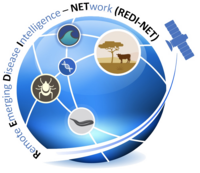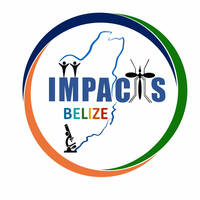Active Collaborations
Remote Emerging Disease Intelligence NETwork (REDI-NET)

The REDI-NET consortium has developed a flexible, scalable, and expandable computing substrate - ‘a system of systems’ - upon which a myriad of global health computing platforms can be developed and customized to support specific modeling, prediction and policy decisions in support of public health. The REDI-NET focuses on enhanced surveillance approaches to characterize naturally occurring pathogens in temperate, tropical forest, and tropical grassland sites. With funding from the Department of Defense, the University of Notre Dame is implementing this project in partnership with Belize Vector and Ecology Center (BVEC), Navy Medical Research Center (NMRC), Navy Entomology Center of Excellence (NECE), Walter Reed Biosystematics Unit (WRBU), Smithsonian Institute, Mpala Research Centre and Vectech.
To learn more about the REDI-NET project, click here for the Phased REDI-NET approach.
Integrated Mayo Program for Arbovirus Community education, Training and Surveillance (IMPACTS)

In collaboration with the University of Notre Dame, the Mayo Clinic and the Ministry of Health, Belize announced a five-year program to better understand and respond to Zika virus and other arbo-viral infections in the country. The project approach is four-tiered and draws on expertise from both Notre Dame and Mayo Clinic to provide assistance in capacity building in medical diagnostic capacity, human population surveillance and insect vector surveillance and community outreach.
To learn out more about the IMPACTS project, click here for a breakdown of the 4 tiers of the IMPACTS project and IMPACTS Mayo Collaborators
One Health Belize
Many of the same microbes infect animals and humans, as they share the same ecosystems, and efforts by just one sector cannot prevent or eliminate the problems within another. For instance, rabies in humans is effectively prevented only by targeting the animal source of the virus which is not the purview of Medical Personnel. Thus, a collaborative, multisectoral, and transdisciplinary approach working at the local, regional, national, and global levels with the goal of achieving optimal health outcomes is achieved by recognizing the interconnection between people, animals, plants, and our shared environment.
BVEC was invited to be part of the One Health Program to close the gaps in research within Belize. Through REDI-NET, the One Health Program will benefit from data sharing to build the database of zoonotic diseases in Belize for a collective approach to predict and contain future endemics.
To learn more about the One Health Belize Program, click here for the One Health Belize website.
Belize Response Initiative for Cold Chain (BRICC)
In January 2021, Carrier Foundation funded a collaborative initiative between Eck Institute for Global Health (EIGH), the Pulte Institute for Global Development, the Belize Vector Ecology Center (BVEC), and the Belize Ministry of Health and Wellness aimed at strengthening national cold chain systems by identifying and addressing structural and logistical deficiencies in how biological samples are currently stored and transported between local clinics, regional hospitals, and the only laboratory diagnostics center in the country. The project has three phases:
- Phase 1: evaluation of current conditions and procedures used to deliver medical specimens to the existing cold chain process.
- Phase 2: design a pilot implementation strategy that will address areas for improvement in the existing cold chain protocol.
- Phase 3: develop a field-validated pilot solution for a medical cold chain
To learn more about the BRICC project, click here for a breakdown of the BRICC project and the importance of maintaining a proper medical cold chain.